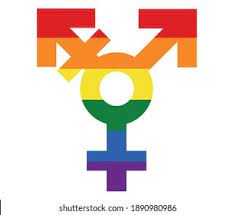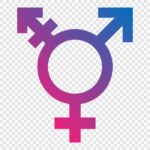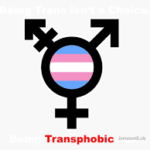Low estrogen levels can significantly affect your body and overall well-being. Estrogen is a key hormone that plays a crucial role in the reproductive system, bone health, and even mood regulation. When estrogen levels dip, it can lead to various physical and emotional symptoms that may impact your daily life. This article will guide you through understanding low estrogen, its common symptoms, and potential remedies to help restore hormonal balance.
In addition to exploring natural remedies and supplements, we’ll delve into lifestyle changes that can promote hormonal health. If you’re experiencing signs of low estrogen, it’s vital to understand when it’s time to seek professional help, including the possibility of hormone replacement therapy (HRT). Let’s take a closer look at what it means to have low estrogen and how you can manage it effectively.Mtf Breast Timeline
Understanding Low Estrogen: What It Means for You
Low estrogen levels refer to a decrease in the hormone estrogen, which is vital for female reproductive health. This condition can arise from various factors, including aging, hormonal imbalances, certain medical treatments, or lifestyle choices. A decline in estrogen often occurs during perimenopause and menopause, leading to significant changes in a woman’s body. Understanding low estrogen is crucial as it can affect everything from menstrual cycles to bone density.
When estrogen levels drop, the body tries to compensate, but this can lead to a range of health issues. Recognizing the signs and symptoms of low estrogen is the first step toward managing your health. Luckily, there are many ways to support your body naturally and medically, ensuring that your hormonal levels are balanced and functioning optimally.
Common Symptoms of Low Estrogen to Watch Out For
There are several symptoms associated with low estrogen that you might notice in your daily life. Common signs include irregular or missed periods, hot flashes, night sweats, and mood swings. Other physical symptoms can involve dry skin, hair thinning, and discomfort during sexual activities due to vaginal dryness. Being aware of these symptoms is essential for early detection and treatment.
Emotional symptoms may also manifest, such as increased anxiety, irritability, or depression. Low estrogen can impact your overall mood and energy levels, making it crucial to pay attention to how you feel. If you’re experiencing any combination of these symptoms, it may be time to evaluate your hormone levels and consider the potential causes.
Natural Remedies: Foods to Boost Your Estrogen Levels
Diet can play a pivotal role in managing low estrogen levels naturally. Incorporating phytoestrogen-rich foods into your diet can help mimic estrogen in the body. Foods like soy products (tofu, tempeh, and soy milk), flaxseeds, sesame seeds, and chickpeas are excellent options. These foods contain compounds that can help balance hormone levels and are also beneficial for overall health.
In addition to phytoestrogens, a balanced diet rich in fruits, vegetables, whole grains, and healthy fats can support hormonal health. Foods high in antioxidants, such as berries and leafy greens, can combat oxidative stress, which may also contribute to hormonal imbalances. Paying attention to what you eat can be a proactive step toward improving your estrogen levels.
Supplements That Might Help With Low Estrogen
If dietary changes alone don’t suffice, certain supplements may help elevate estrogen levels. Black cohosh is a popular herbal remedy known for its potential to alleviate menopausal symptoms and support estrogen balance. Additionally, red clover extract is rich in phytoestrogens and may offer similar benefits. Always consult with a healthcare professional before starting any new supplements.
Another option to consider is Vitamin E, which can support hormonal balance and improve symptoms associated with low estrogen, such as hot flashes. Omega-3 fatty acids, found in fish oil or flaxseed oil, may also play a role in regulating hormones and reducing inflammation. As with all supplements, the key is to tailor your choices to your individual needs and health conditions.
Lifestyle Changes to Consider for Hormonal Balance
Your daily lifestyle choices can significantly impact your hormonal health. Regular physical activity is essential; exercise not only helps maintain a healthy weight but also promotes hormonal balance. Engaging in activities such as yoga, pilates, or even brisk walking can be beneficial for reducing stress and improving overall well-being.
Another crucial lifestyle factor is stress management. Chronic stress can lead to hormonal imbalances, including low estrogen levels. Incorporating stress-reducing practices like mindfulness, meditation, or deep-breathing exercises can help you achieve better hormonal equilibrium. Prioritizing sleep is also vital; ensure you get enough restorative rest to support your body’s natural hormonal cycles.
When to Consider Hormone Replacement Therapy (HRT)
For some women, lifestyle changes and natural remedies may not be enough to alleviate the symptoms of low estrogen. In such cases, hormone replacement therapy (HRT) may be considered. HRT involves taking medications that contain estrogen, which can help restore hormonal balance and relieve symptoms. It is commonly prescribed during menopause but may also benefit younger women with hormonal imbalances due to other medical conditions.
Before starting HRT, it’s essential to have a thorough discussion with your healthcare provider. They will evaluate your symptoms, medical history, and potential risks and benefits of HRT. It’s important to understand that while HRT can be effective, it may also have side effects, so weighing your options carefully is crucial.
Consulting Your Doctor: What You Need to Know
When dealing with low estrogen, consulting a healthcare professional is paramount. They can order blood tests to check your hormone levels and provide a comprehensive assessment of your health. This medical evaluation will help determine the best course of action, whether it’s lifestyle changes, supplements, or HRT.
Being open with your doctor about your symptoms and any changes you’ve noticed in your body is essential. Don’t hesitate to ask questions and express any concerns you may have. Your doctor is your ally in this journey, and together you can develop a tailored plan to address your hormonal health.
Embracing a Holistic Approach to Hormonal Health
Managing low estrogen goes beyond just treating symptoms; it requires a holistic approach. This means considering not only physical health but also emotional and mental well-being. Practices such as mindfulness, therapy, and building a strong support network can be incredibly beneficial. A balanced lifestyle that incorporates healthy eating, regular exercise, and stress management can create a solid foundation for hormonal health.
Embracing a holistic approach also involves being kind to yourself. Hormonal fluctuations are natural, and understanding your body can lead to better self-care practices. By integrating various strategies and seeking support, you can empower yourself to maintain hormonal balance and thrive in your daily life.
Low estrogen can present several challenges, but with the right knowledge and tools, you can take control of your hormonal health. From recognizing the symptoms to exploring natural remedies, supplements, and lifestyle changes, there are many ways to support your body effectively. Always remember to consult with a healthcare professional for personalized advice and treatment options. By adopting a holistic approach, you can navigate the complexities of hormonal balance and embrace a healthier, happier you.


